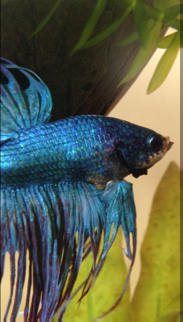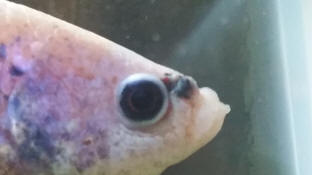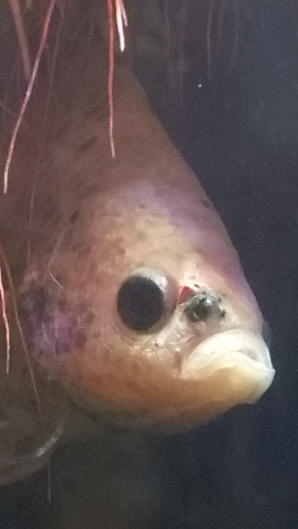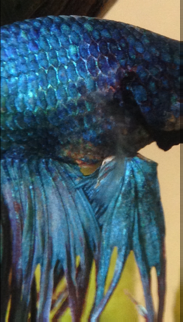|
FAQs on Betta
Diseases/Health 35
Related Articles:
Anabantoids/Gouramis &
Relatives, Betta
splendens/Siamese Fighting Fish,
Betta Systems,
Betta Diseases,
Improved
(Better?) Products for Bettas!,
Related FAQs:
Betta Disease 1,
Betta Disease 2,
Betta Disease 3,
Betta Disease 4,
Betta Disease 5,
Betta Disease 6,
Betta Disease 7,
Betta Disease 8,
Betta Disease 9 ,
Betta Disease 10 ,
Betta Disease 11 ,
Betta Disease 12 ,
Betta Disease 13 ,
Betta Disease 14 ,
Betta Disease 15 ,
Betta Disease 16 ,
Betta Disease 17 ,
Betta Disease 18,
Betta Disease 19,
Betta Disease 20,
Betta Disease 21,
Betta Health 22,
Betta Health 23,
Betta Health 24,
Betta Health 25,
Betta Health 26, Betta Health 27,
Betta Health 28,
Betta Health 29,
Betta Health 30,
Betta Health 31,
Betta Health 32,
Betta
Health 33, Betta Health 34,
Betta Health 35,
Betta Health 36,
Betta
Health 37, Betta Health 38,
Betta Health 39,
Betta Disease
Causes/Etiologies: Determining/Diagnosing,
Environmental (By far the largest cat.),
Nutritional,
Viral/Cancer,
Infectious (Bacterial, Fungal) ,
Parasitic:
Ich/White Spot,
Velvet;
Senescence/Old Age,
Cures/Curatives/Treatments,
FAQs on Betta Medicines:
Betta
Medicines period, Antibiotics/Antibacterials,
Anti-Protozoals (Metronidazole,
eSHa...), Copper,
Formalin,
Malachite Green,
Anthelminthics,
Organophosphates,
Salts,
All
Other Betta Med.s,
|

|
 |
Betta Success
Doing what it takes to keep Bettas healthy long-term
by Robert (Bob) Fenner
|
|
Re: bloated Betta 9/26/17
Hi there me again sorry! My boy is doing ok, still a tad bloated so continuing
with non pellet diet for now with Epsom salts in the tank.
<Ok>
His fins are now deteriorating however.
<Yes! Very>
A couple of the rays have snapped off his dorsal and overall they look thin.
Does this look like fin rot to you?
<Mmm; no. More like environmental stress. How much Epsom is in this water?
You don't have ammonia or nitrite present?>
I'm now wondering if his bloat was bacterial after all and I should treat him
for that? His eating and energy levels are fine. TIA!
<I would change most all the water out here. Bob Fenner>
|
 |
|
Re: bloated Betta 9/26/17
Thanks for your reply! Ammonia & nitrite 0 and nitrate around 10. Ph is 8.2 but
it's always been that. I used about a tsp of Epsom salts in my 19l tank - maybe
I've left it in too long?
<No... all the above should be fine>
I'll do a couple of big water changes tomorrow. His rays have been getting
thinner gradually. Aside from regular water changes and high protein diet is
there anything else I can do to build them up again?
<Am given to suggest 25 mg. of Kanamycin, Kanaplex per gallon... changing the
water every three days, three courses.>
Thank you so much for your help :)
<Welcome Karan. BobF>
Re: bloated Betta 9/26/17
Thanks for your quick response Bob! I'm in the UK and cannot get hold of
Kanaplex. What else would you recommend?
<To go see your Vet re; or a sympathetic MD>
Would Seachem Paraguard do it?
<... no>
Am assuming you're thinking it's fin rot?
<Yes. B>
|
Re: bloated Betta 10/25/27
Hi wwm! Am after some more advice please as I'm unsure what to do next.
I couldn't get hold of Kanaplex as advised by Bob for fin rot but had Furan 2 so
have treated him in a hospital tank with that. I think the fin rot/melt has
halted but his top fin looks stiff now. He also has done a couple of clear poos
and appears a bit more lethargic. The poo yesterday was clear and very long and
stringy and took ages to come off. Would you think this indicates internal
bacteria or internal Parasites?
<Might be or no. The only way to tell for sure is to look at a sample under a
microscope>
He has had brine shrimp which may account for clear poo. My problem is I have
Kanaplex arriving in the next few days but not sure to use it or worm him or
leave him with daily water changes for a bit?
<I'd stick w/ just the water changes>
Here's a pic of him now after the Furan 2
Pic of him before Furan 2
<Bob Fenner>
|
.JPG)  |
|
Bettas and Malawi Bloat 9/30/17
Hey all! A few years ago, I had a couple of Bettas succumb to "bloat",
unspecified. All advice in other forums start off with "feed it a pea",
"he's constipated". I have found that never to be the case in my
situation.
<Mmm; most cases of "bloat" are bacterial infection derived>
When the last bloat sufferer had to be euthanized, I did some
researching and came across an article and a few other sources that
suggested Malawi bloat in Betta fish. One particular instance, the owner
had the swelling of his Betta aspirated and they found acid-fast bacilli
(Mycobacterium perhaps??).
<Could be>
The disease appears similar in Betta and cichlids, save for one thing:
Bettas seem to do pretty well and stay relatively active much longer
than the cichlids. They do not succumb quickly. A quote from the article
(I am sorry but I cannot remember where I found this or I would cite the
author):
“Malawi bloat may be caused by the same pathogen, (acid fast bacillus)
but I think it’s important to differentiate the symptoms in a Betta...
*Here are the symptoms in a cichlid:*
*QUOTE “The first symptom is usually a loss of appetite. Other
characteristics follow if treatment if not begun at this point. These
secondary characteristics include abnormal swelling of the abdomen
(hence the name-bloat), an increased respiratory rate, reclusiveness,
white streaky feces, and sitting on the bottom of the tank or lingering
at the
surface. Red marks around your fish’s ***** or skin ulcerations might
also be apparent. Symptoms only appear in the latter stages of the
disease; therefore, it is important to begin treatment as soon as
symptoms are noticed, otherwise you will lose your fish.”*
*Here are the symptoms in a Betta:*
Acts normal in every way except for ever expanding abdomen: doesn’t lose
appetite, continues to swim and flare and no visible sores anywhere else
on the body. A long, stringy discharge is often noted.
Since so many people treat their Bettas for bloat by starving, giving
them incompatible food (peas) etc., I wonder if more could be done in
the way of finding a better way to treat this?
<... have you searched, read on WWM re? Useful antibiotic use and
ameliorative use of Epsom Salt are standard approaches>
If only I still had my scope ( former microbiologist and micro teacher )
I would love to have a look at aspirates
to see if AFB were to show up in more cases.
<Me too>
What say you, I would love some insight. I think this is a very
interesting concept.
Once again, thanks for all you do!
Kimberley Mitchel
<The search tool... on all WWM pages. Bob Fenner>
Re: Bettas and Malawi Bloat 9/30/17
Well, all I seem to find re: Malawi bloat has to do with cichlids and
not Bettas; but, I will keep searching!
Thanks again Bob!!
<Sorry for not being more explicit, please use the two words "Betta
bloat" in the WWM search tool, and look for the highlighted FAQs. BobF>
Bettas and Malawi Bloat /Neale chimes in
Hey all! A few years ago, I had a couple of Bettas succumb to "bloat",
unspecified. All advice in other forums start off with "feed it a pea",
"he's constipated". I have found that never to be the case in my
situation.
<Indeed. The key issue is that bloating (Dropsy) is a symptom
rather than a disease. Superficially similar to constipation,
which can indeed be fixed by providing extra fibre in the diet. But
Dropsy is an issue with fluid retention within the body, and
that can be associated with bacterial infections, environmental stress,
and likely other factors as well. There really isn't a 'one size fits
all' treatment.>
When the last bloat sufferer had to be euthanized, I did some
researching and came across an article and a few other sources that
suggested Malawi bloat in Betta fish. One particular instance, the owner
had the swelling of his Betta aspirated and they found acid-fast bacilli
(Mycobacterium perhaps??). The disease appears similar in Betta and
cichlids, save for one thing: Bettas seem to do pretty well and stay
relatively active much longer than the cichlids. They do not succumb
quickly. A quote from the article (I am sorry but I cannot remember
where I found this or I would cite the author):
“Malawi bloat may be caused by the same pathogen, (acid fast bacillus)
but I think it’s important to differentiate the symptoms in a Betta...
*Here are the symptoms in a cichlid:*
*QUOTE “The first symptom is usually a loss of appetite. Other
characteristics follow if treatment if not begun at this point. These
secondary characteristics include abnormal swelling of the abdomen
(hence the name-bloat), an increased respiratory rate, reclusiveness,
white streaky feces, and sitting on the bottom of the tank or lingering
at the surface. Red marks around your fish’s *****
<I have no idea what part of a fish is its five asterisks.>
or skin ulcerations might also be apparent. Symptoms only appear in the
latter stages of the disease; therefore, it is important to begin
treatment as soon as symptoms are noticed, otherwise you will lose your
fish.”*
*Here are the symptoms in a Betta:*
Acts normal in every way except for ever expanding abdomen: doesn’t lose
appetite, continues to swim and flare and no visible sores anywhere else
on the body. A long, stringy discharge is often noted.
<Here's the thing. Those 'symptoms' are completely generic. They simply
imply the fish is sick and stressed. Swelling can be a variety of things
as we've mentioned. Loss of appetite and reclusiveness simply mean the
animal feels bad; white stringy faeces indicate mucous rather than
uneaten food are being passed out of the gut; red streaks on the body or
fins are indicative of bacterial infections causing inflammation or
necrosis. Absolutely nothing in that list that is specifically one
disease, let alone Mycobacteriosis. The only way you'd know if
Mycobacteria are to blame is by doing microscope work on a sample of
tissue. Anything else based on external observation of fish behaviour
and generic symptoms is wishful thinking on the part of the aquarist.>
Since so many people treat their Bettas for bloat by starving, giving
them incompatible food (peas) etc., I wonder if more could be done in
the way of finding a better way to treat this?
<I'm sure. The vast majority of Betta deaths are surely down to
poor environment. The fact they're widely sold as "dorm room"
pets to be dumped in tanks holding half a gallon of water pretty much
sums are the state of play. Any Betta kept in an unheated,
unfiltered bowl is already facing an early death, and couple
that with their perceived 'disposability' you can see that the biggest
issue we have to deal with here is simply convincing people their Bettas
need heat, good water quality, and a suitable amount of living space.>
If only I still had my scope ( former microbiologist and micro teacher )
I would love to have a look at aspirates to see if AFB were to show up
in more cases.
<Precisely so. It's done, of course, but with relatively low-value pets
like Bettas very few people do the necessary microbiology work.>
What say you, I would love some insight. I think this is a very
interesting concept.
Once again, thanks for all you do!
Kimberley
<I will direct you to some reading, here:
http://www.wetwebmedia.com/ca/volume_6/volume_6_2/mycobactera.htm
I think you'll find this very useful. Cheers, Neale.>
Re: Bettas and Malawi Bloat 9/30/17
Thanks Neale, for your reply. I suppose I should've kept it short and
sweet and asked: since there have been instances of acid fast bacilli
pulled from the swelling of Bettas with bloat, (forget the other
symptoms in the quote,
comparing cichlids symptoms), would there be a better way to treat IF
AFB was shown to be the cause in a Betta that is well taken care of?
<I'm not knowledgeable enough to answer this, I'm afraid. There are,
certainly, medications explicitly sold for gram-positive and
gram-negative bacteria. But otherwise your best approach here is to
research the medicines on salt, identify the contents (Minocycline,
erythromycin, etc.) and use them accordingly.>
My Bettas were well cared for and lived a long while, even with the
bloat.
And it's true, the cheaper and more expendable the animal, the less
anyone would take the time to find out.
I'm surely not trying to frustrate anyone...this is my curiosity.
<Laudable.>
Anyway, thanks again for all of your great advice and replies. No need
to add to my musing here. Just thinking out loud with people who
understand what the heck I'm talking about!
Kim
<Glad to be a sounding board! Neale.>
|
Black Spot (Neale?) 9/13/17
Hello,
<Howsit Whit?>
I'm having a bit of a mystery with my Betta. He has this black mark on his head
that showed up in the last two months or so.
<Mmm; first off, I REALLY like your photos. Second, am really NOT liking this
spot>
He is in a 10 gallon heavily planted tank with neon tetras and Neocaridina
shrimp. Tank parameters are ph 7.4-7.6, ammonia: 0, nitrite:0, nitrate:0 (0
nitrate is normal for my tank due to all the plants).
<I see>
He did injure his tail a few weeks ago on something in the tank but that is
healing nicely. I don't recall if this showed up at the same time.
Do you have any ideas what it could be our if I need to treat it?
<This blackish area looks like a growth... perhaps a melanoma. Some folks might
advocate cutting it off... Am going to ask Neale Monks here for his individual
input. Thank you for sharing. Bob Fenner>
Thanks,
Whitney
|

 |
|
Black Spot, Betta, Neale's input
9/14/17
Hello,
<Whitney,>
I'm having a bit of a mystery with my Betta. He has this black mark on his head
that showed up in the last two months or so.
<Looks to me like less of a mark and more of a growth, blood blister, or some
other type of mass inside the nostril.>
He is in a 10 gallon heavily planted tank with neon tetras and Neocaridina
shrimp. Tank parameters are ph 7.4-7.6, ammonia: 0, nitrite:0, nitrate:0 (0
nitrate is normal for my tank due to all the plants).
<Understood.>
He did injure his tail a few weeks ago on something in the tank but that is
healing nicely. I don't recall if this showed up at the same time.
Do you have any ideas what it could be our if I need to treat it?
<Short term, I'd observe. Give a couple weeks and see if anything changes.
Perhaps run some antibiotics if you have them handy, as per Finrot, but likely
unnecessary so not a priority. If, after a couple weeks, the growth or mass is
smaller, then leave things be for another couple weeks. If it's
an actively growing melanoma or tumour, there's nothing to be done except
humanely destroy the fish as/when quality of life deteriorates. If it's a cyst,
it probably won't enlarge quickly, if at all, so there's no pressing health
issue to worry about. No treatment, either. Sometimes cysts heal under their own
steam, sometimes not. Vets can remove them from big fish (such as Koi) but it's
hard to imagine this being viable with a fish as
small as a Betta. If it's a blood blister, for example caused by hitting the
head against the glass when jumping, it should heal in time, just as with
humans.>
Thanks,
Whitney
<Good luck, Neale.>
|
|
bloated Betta 9/13/17
Hi there
Hope you can help. My Betta is a bit bloated and not pooing so often.
<Mmm; yes; looks a bit prolapsed>
He's been fasted for 2 days and then fed frozen daphnia.
<Good>
He was still bloated so
I gave him an Epsom salt bath.
<Even better>
He's still a bit bloated and then I noticed this protruding from his anus - any
idea what it is?
<Yes; the cloaca (communal sex and excretory opening)>
He's done a thin poo that is clear in places but took ages to come out. Been
advised to worm him with ESHa or treat with Octozin but not sure what to do.
<Octozin would be my choice here; along with the Epsom in the system. They are
fine to use together>
Any advice would be welcome thanks!
<Welcome. Bob Fenner>
|

 |
|
Re: bloated Betta 9/13/17
Great thank you. Would the Octozin be for treating internal parasites that cause
the bloat?
<Hopefully... this situation might involve bacteria, Protozoa>
Can parasites also cause constipation?
<Oh yes>
I'll continue with daily Epsom salt baths and get some Octozin.
Thanks
<Please do keep us informed. BobF>
Re: bloated Betta 9/19/17
Hi there
I did the 3 day course of Octozin coupled with daily Epsom salt baths and
daphnia. He did a couple of small poos but is still bloated and not regular. We
went on holiday for 10 days a few weeks ago. He was fed daily but his tank was a
mess when we got back and some of the uneaten pellets had white fungus growing
on them. Wondering if this is the cause and perhaps its bacterial?
<Could be contributing causes>
Any suggestions are welcome.
Thanks
Karan
<I'd just keep this fish in (clean) Epsom treated water for now; and continue w/
laxative type foods like the Daphnia/Water Fleas, frozen/defrosted Brine
Shrimp/Artemia. Bob Fenner>
Re: bloated Betta 9/19/17
Thanks. Do you mean add the Epsom salt to the tank or continue with baths?
<To the tank itself; per Neale's article I've linked, sent to you. B>
|
|
|

